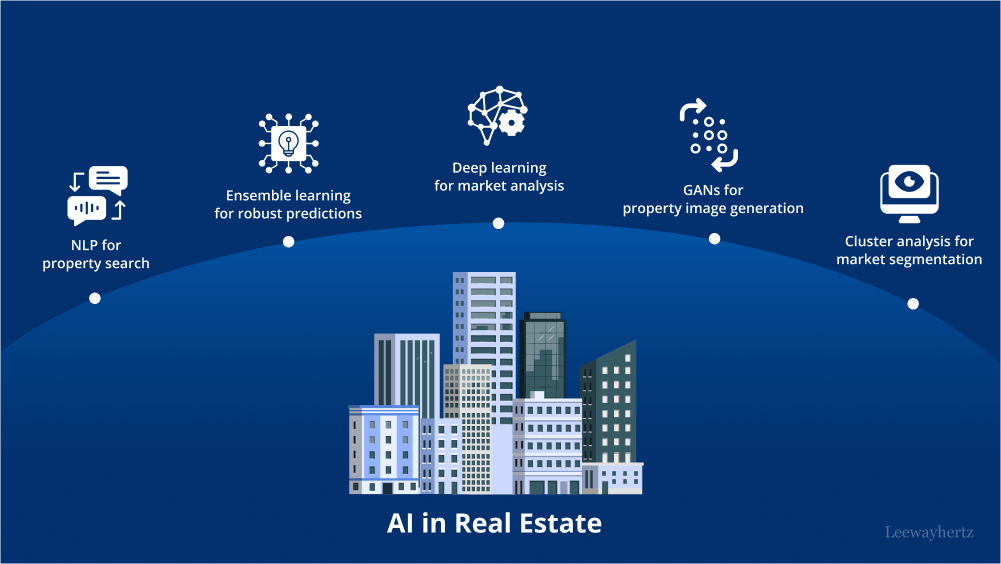Artificial Intelligence (AI) is revolutionizing the real estate industry, transforming how properties are bought, sold, managed, and valued. From smarter decision-making to improved customer experiences, AI is reshaping every aspect of the property market.
What is the Role of AI in Real Estate?
AI in real estate involves using machine learning, data analytics, computer vision, and automation to enhance property-related processes. Whether it’s finding the right property, predicting market trends, or streamlining operations, AI enables real estate professionals to work faster, smarter, and more efficiently.
Key Roles of AI in Real Estate
Predictive Analytics for Market Trends
AI can analyze historical and current data to forecast property values, rental income, and neighborhood development. These predictive insights help investors and agents make informed decisions about when and where to buy or sell.
Property Valuation and Price Estimation
AI algorithms can accurately estimate property prices by considering a wide range of factors like location, size, amenities, historical prices, and local demand. This provides fairer, real-time property evaluations for both buyers and sellers.
Virtual Tours and Chatbots
AI-powered virtual tours allow potential buyers to explore properties remotely, enhancing convenience and access. Intelligent chatbots can also answer queries, schedule appointments, and guide users through listings 24/7, improving customer service.
Smart Property Management
AI helps property managers automate routine tasks such as rent collection, maintenance requests, and tenant screening. Predictive maintenance powered by AI can alert managers before equipment fails, saving time and money.
Fraud Detection and Risk Assessment
AI systems can detect unusual patterns and flag fraudulent listings or transactions. They also assess credit risk and rental history, assisting in safer and faster tenant onboarding.
Investment and Portfolio Optimization
AI can assist investors by identifying high-return opportunities based on data-driven insights. It can analyze property performance, optimize portfolios, and suggest diversification strategies to minimize risk and maximize ROI.
Considerations When Using AI in Real Estate
While AI offers many benefits, it’s important to implement it responsibly:
- Data Privacy: Ensure user data is handled securely and in compliance with legal regulations.
- Transparency: Be clear about how AI-generated insights are produced, especially in pricing or risk evaluation.
- Human Oversight: AI should support, not replace, professional judgment—human experience and intuition still matter.
Conclusion
AI is playing a transformative role in the real estate sector by increasing efficiency, accuracy, and accessibility. From intelligent search tools to predictive analytics and virtual experiences, AI is making real estate smarter and more responsive. However, to unlock its full potential, it’s essential to integrate AI with ethical practices and human expertise, creating a future where technology and people work hand in hand.







Leave feedback about this